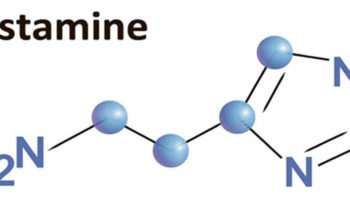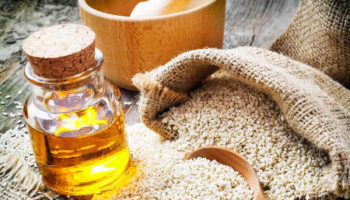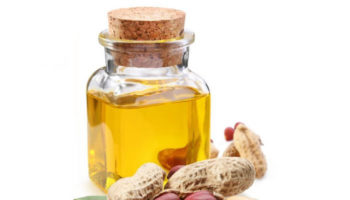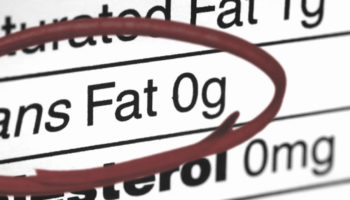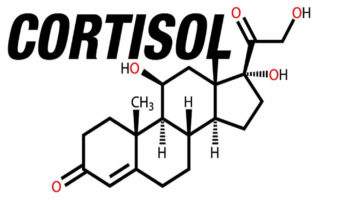
Contents
What is Schisandra ?
Schisandra berries (Wu Wei Zi in Chinese) is eaten as a fruit. The Schisandra fruits are globular and red with several kidney-shaped seeds. The fruit is harvested in autumn when ripe. Schisandra is native to northeastern and north central China and is also found in eastern Russia. Schisandra is also known as Schisandra chinensis (Schisandra arisanensis, Schisandra sphenanthera, Schisandra rubriflora) or Kadsura chinensis, is a commonly used traditional Chinese herbal medicine that has been primarily used to protect the liver because of its potent antioxidative and anti-inflammatory activities for thousands of years 1. There is an increasing popularity of natural products including Schisandra that are used for the management of various ailments and improvement of body health, although the clinical evidence for their application is poor or lacking 2.
Schisandra chinensis has a wide range of pharmacological activities, including antioxidant, hepatoprotective, antibacterial, anticancer, cardioprotective, and anti-inflammatory effects 3. Schisandra chinensis is widely and mainly used to protect the liver in clinical settings in Asian countries, including the People’s Republic of China, Japan, and Korea 3. Schisandra chinensis extract contains a mixture of various bioactive compounds and the lignanoids are the main bioactive components, including schisandrin (Sch); pseudo Sch; SchA (ie, deoxyschisandrin), SchB, and SchC; γ-Sch; schisandrols A and B; Wuweizi ethers A and B; and schisanhenol 4, 5. Among them, schisandrin B is the most abundant dibenzocyclooctadiene lignanoid present in Schisandra chinensis. Previous preclinical studies have found that Schisandra chinensis and its major active lignanoids protected the liver in various liver-injured models, with different mechanisms involved in its hepatoprotective activities 6, 7, 8. These include antioxidation, inhibition of cytokine production, inhibition of apoptosis, activation of Nrf2, and other possible mechanisms 9, 10, 11. However, the mechanism is not fully understood, and the role of (erythroid-derived 2)-like 2 (Nrf2) in the hepatoprotection in human hepatocellular liver carcinoma of Schisandra chinensis is not elucidated. The nuclear factor (erythroid-derived 2)-like 2 (Nrf2) is a ubiquitous transcriptional factor encoded by the NFE2L2 gene in humans and plays a critical role in the maintenance of cellular homeostasis 12, 13.
Schisandra chinensis extract (Wuweizi), dried mature fruit from Schisandra chinensis, is one of the most commonly used Chinese herbal medicines as a liver protectant 14. To date, in animal studies, it has been shown that Schisandra chinensis extract (schisandrin A, and schisandrin B) has remarkable protective effects on the liver, digestive system, central nervous system, and cardiovascular system 15. These beneficial effects can be ascribed to its antioxidative and anti-inflammatory activities. In this study, it was observed that Schisandra chinensis extract upregulates important drug metabolizing enzymes and drug transporters that participate in xenobiotic (relating to or denoting a substance, typically a synthetic chemical, that is foreign to the body) detoxification with the involvement of Nrf2-mediated signaling pathway in human hepatocellular liver carcinoma cell line cells 1. However, there are limited clinical trials to support these uses.
However the advice from the U.S. National Center for Complementary and Integrative Health on the use of schisandra chinensis in treating Hepatitis C, based on “limited research on these products hasn’t produced convincing evidence that they’re helpful for hepatitis C” 16.
According to the Natural Medicines Comprehensive Database, Schisandra, when taken orally is used as an adaptogen (a natural substance considered to help the body adapt to stress) for increasing resistance to disease and stress, increasing energy, and increasing physical performance and endurance. Schisandra is also used orally for improving vision, boosting muscular activity, improving cellular energy, for hepatitis, liver protection, preventing premature aging, increasing lifespan, for premenstrual syndrome (PMS), stimulating the immune system, speeding recovery after surgery, protecting against radiation, preventing motion sickness, normalizing blood sugar and blood pressure, reducing high cholesterol, preventing infection, and improving adrenal health. Schisandra is also used for pneumonia, coughs, asthma, insomnia, neurasthenia, chronic diarrhea, dysentery, night sweats, spontaneous sweating, involuntary seminal discharge, thirst, impotence, physical exhaustion, excessive urination, depression, irritability, and memory loss. It is also used to reduce the frequency and severity of attacks of familial Mediterranean fever in children 14.
We are not suggesting that eating or taking Schisandra chinensis herbal supplements will help with those conditions outlined by the Natural Medicines Comprehensive Database. Far from it, Schisandra chinensis with no rational mechanism of action for most of its claimed benefits is largely just pseudoscience. And any claims made on behalf of an uncharted body of knowledge should be treated with the customary scepticism that is the bedrock of both science and medicine !
If You’re Considering Taking a Dietary Supplement for Hepatitis C 16
- Do not use any complementary health approach to replace conventional treatments for hepatitis C or as a reason to postpone seeing your health care provider about any medical problem.
- Be aware that dietary supplements may have side effects or interact with conventional medical treatments.
- If you’re pregnant or nursing a child, or if you’re considering giving a child a dietary supplement, it’s especially important to consult your (or your child’s) health care provider. Supplements can act like drugs, and many have not been tested in pregnant women, nursing mothers, or children.
- Tell all your health care providers about any complementary health approaches you use. Give them a full picture of what you do to manage your health. This will help ensure coordinated and safe care.
What is Schisandra recommended dosage ?
Schisandra fruit is used to offset stress at dosages of 1.5 to 6 g/day 17. A standardized extract containing 3.4% schisandrin has been used in a clinical trial for improved athletic performance. Various doses used in Russia include alcohol tinctures of fruit or seeds given as 20 to 30 drops twice daily; water infusion of fruits (1:20 w/v) given as 150 mL twice daily; air-dried fruits 0.5 to 1.5 g twice daily; seed powder 0.5 to 1.5 g twice daily before lunch and dinner over 20 to 30 days; seed alcohol seed extract as a single dose of 0.05 or 0.2 mL/kg 17.
Schisandra Side Effects
Schisandra fruit is possibly safe when taken by mouth as there are no reports of adverse effects.. However, schisandra extract and schisandra berry powder may cause heartburn, upset stomach, decreased appetite, stomach pain, skin rash, and itching.
Schisandra Toxicities
The minimum toxic dose when given orally to mice is 3.6 g/kg. Acute toxicity was studied in mice, and following administration into the body cavity, no effects on blood pressure, breath, or motility were noted; however, high doses (175 to 370 mg/kg) caused convulsions and impaired movement.
Schisandra Extract Special Precautions & Warnings:
- Pregnancy and breast-feeding: Schisandra is POSSIBLY UNSAFE when taken by mouth during pregnancy. There is some evidence that it might cause the uterus to contract, and this might lead to miscarriage. Do not use schisandra during pregnancy. There is not enough reliable information about the safety of taking schisandra during breast-feeding. Stay on the safe side and avoid use. Safety and effectiveness in pregnancy and lactation is unknown. Compounds from the stem of Schisandra propinqua were found to inhibit rat and human reproductive cells in vitro.
- Epilepsy: At least one expert warns against using schisandra if you have epilepsy. The reason for this warning is not clear, but it may be due to a concern that schisandra could possibly stimulate the central nervous system.
- Gastroesophageal reflex disease (GERD) or peptic ulcers: Schisandra might make these conditions worse by increasing stomach acid.
- High brain (intracranial) pressure: There is a concern that schisandra might make this condition worse because it could possibly stimulate the central nervous system.
Schisandra Extract & Drug Interactions:
Medications changed by the liver interacts with schisandra chinensis.
Some medications are changed and broken down by the liver.
Schisandra might increase how quickly the liver breaks down some medications. Taking schisandra along with medications that are broken down by the liver might decrease the effects of these medications.
Before taking schisandra, talk to your healthcare provider if you are taking any medications that are changed by the liver.
- He J-L, Zhou Z-W, Yin J-J, He C-Q, Zhou S-F, Yu Y. Schisandra chinensis regulates drug metabolizing enzymes and drug transporters via activation of Nrf2-mediated signaling pathway. Drug Design, Development and Therapy. 2015;9:127-146. doi:10.2147/DDDT.S68501. https://www.ncbi.nlm.nih.gov/pmc/articles/PMC4277124/[↩][↩]
- Traditional medicine: a culture in the balance. Qiu J. Nature. 2007 Jul 12; 448(7150):126-8. https://www.ncbi.nlm.nih.gov/pubmed/17625539/[↩]
- Panax ginseng, Rhodiola rosea and Schisandra chinensis. Chan SW. Int J Food Sci Nutr. 2012 Mar; 63 Suppl 1():75-81. https://www.ncbi.nlm.nih.gov/pubmed/22039930/[↩][↩]
- Wang MC, Lai YC, Chang CL. High throughput screening and antioxidant assay of dibenzo[a,c]cyclooctadiene lignans in modified-ultrasonic and supercritical fluid extracts of Schisandra chinensis Baill by liquid chromatography-mass spectrometry and a free radical-scavenging method. J Sep Sci. 2008;31(8):1322–1332. https://www.ncbi.nlm.nih.gov/pubmed/18446887[↩]
- Lu Y, Chen DF. Analysis of Schisandra chinensis and Schisandra sphenanthera. J Chromatogr A. 2009;1216(11):1980–1990. https://www.ncbi.nlm.nih.gov/pubmed/18849034[↩]
- Ip SP, Mak DH, Li PC, Poon MK, Ko KM. Effect of a lignan-enriched extract of Schisandra chinensis on aflatoxin B1 and cadmium chloride-induced hepatotoxicity in rats. Pharmacol Toxicol. 1996;78(6):413–416. https://www.ncbi.nlm.nih.gov/pubmed/8829203[↩]
- Yan F, Zhang QY, Jiao L, et al. Synergistic hepatoprotective effect of Schisandrae lignans with Astragalus polysaccharides on chronic liver injury in rats. Phytomedicine. 2009;16(9):805–813. https://www.ncbi.nlm.nih.gov/pubmed/19345075[↩]
- Wang KP, Bai Y, Wang J, Zhang JZ. Inhibitory effects of Schisandra chinensis on acetaminophen-induced hepatotoxicity. Mol Med Rep. 2014;9(5):1813–1819. https://www.ncbi.nlm.nih.gov/pubmed/24604262[↩]
- Stacchiotti A, Li Volti G, Lavazza A, Rezzani R, Rodella LF. Schisandrin B stimulates a cytoprotective response in rat liver exposed to mercuric chloride. Food Chem Toxicol. 2009;47(11):2834–2840. https://www.ncbi.nlm.nih.gov/pubmed/19747521[↩]
- Cheng N, Ren N, Gao H, Lei X, Zheng J, Cao W. Antioxidant and hepatoprotective effects of Schisandra chinensis pollen extract on CCl4-induced acute liver damage in mice. Food Chem Toxicol. 2013;55:234–240. https://www.ncbi.nlm.nih.gov/pubmed/23201450[↩]
- Li L, Zhang T, Zhou L, et al. Schisandrin B attenuates acetaminophen-induced hepatic injury through heat-shock protein 27 and 70 in mice. J Gastroenterol Hepatol. 2014;29(3):640–647. https://www.ncbi.nlm.nih.gov/pubmed/24219791[↩]
- Role of nrf2 in oxidative stress and toxicity. Ma Q. Annu Rev Pharmacol Toxicol. 2013; 53():401-26. https://www.ncbi.nlm.nih.gov/pubmed/23294312/[↩]
- Molecular basis of electrophilic and oxidative defense: promises and perils of Nrf2. Ma Q, He X. Pharmacol Rev. 2012 Oct; 64(4):1055-81. https://www.ncbi.nlm.nih.gov/pubmed/22966037/[↩]
- Natural Medicines Comprehensive Database. http://naturaldatabase.therapeuticresearch.com/home.aspx?cs=&s=ND[↩][↩]
- Li YJ, Takizawa H, Azuma A, et al. Disruption of Nrf2 enhances susceptibility to airway inflammatory responses induced by low-dose diesel exhaust particles in mice. Clinical Immunology. 2008;128(3):366–373. https://www.ncbi.nlm.nih.gov/pubmed/18614404[↩]
- U.S. National Center for Complementary and Integrative Health. Hepatitis C: A Focus on Dietary Supplements. https://nccih.nih.gov/health/hepatitisc/hepatitiscfacts.htm[↩][↩]
- Drugs. Schisandra. https://www.drugs.com/npc/schisandra.html[↩][↩]
